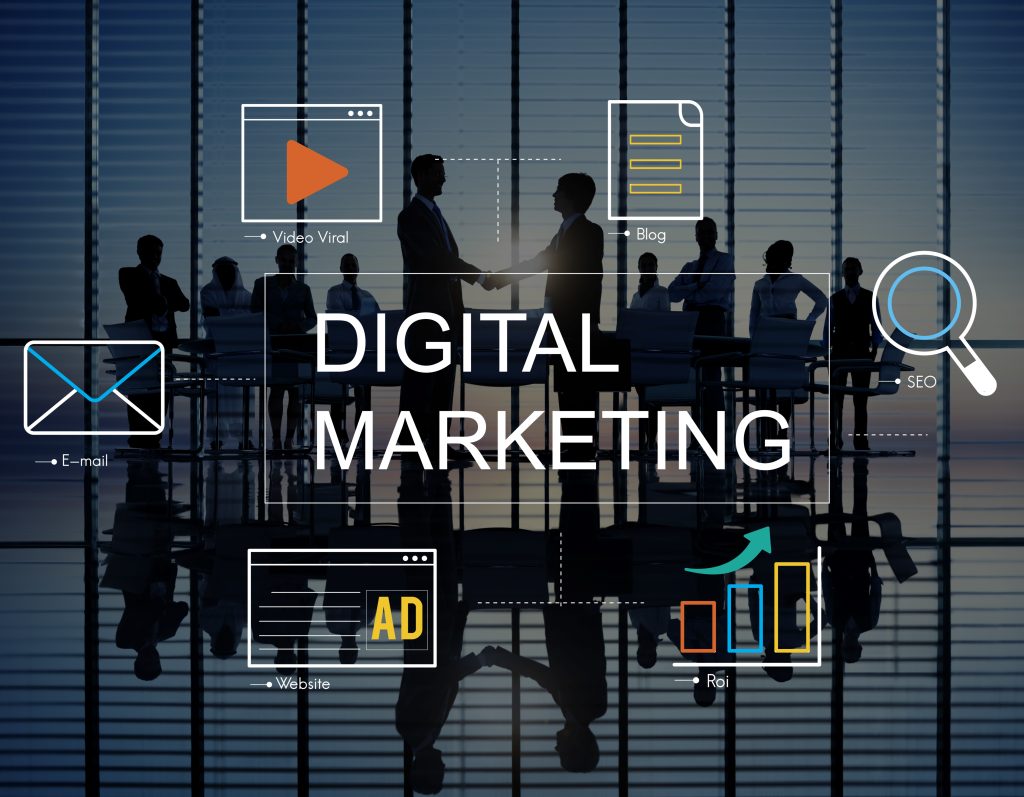Hello, my name is a faiyaz alam
In today fast-moving digital era, businesses of all sizes are rapidly shifting from traditional method of marketing to digital platforms. The reason is simple: the world is now deeply connected through the internets, and consumers spend a large portion of their daily lives online. Digital marketing has therefore emerged as one of the most powerful ways for businesses to reach, engage, and convert potential customers.
But digital marketing is not just about creating online advertisements. It is a comprehensive and strategic approach that uses multiple tools, techniques, and platforms to build meaningful connections with consumers. Whether it is through search engines, social media, websites, emails, or mobile applications, digital marketing helps brands promote their products and services while ensuring real-time engagement and measurable results. Unlike traditional marketing, it is more cost-effective, adaptable, and precise.
Why Digital Marketing Matters

The importance of digital marketing in the modern business landscape cannot be overstated. In the past, companies relied heavily on newspapers, billboards, radio, or television to advertise. Today, most people spend their time scrolling through smartphones, tablets, or laptops. Studies reveal that over 5 billion people worldwide use the internet, and this number continues to grow each years. If businesses want to meet customers where they already are, they must establish a strong digital presence.
Another major advantage of digital marketing is its ability to reach a global audience at low cost. For instance, a small startup in one country can easily promote its products or services to international markets through online advertising—something that was far more expensive and complex just a few decades ago. Digital platforms also provide advanced targeting options, allowing companies to show ads only to users who are most likely to be interested. This kind of precision not only saves money but also significantly increases conversion rates.
Core Components of Digital Marketing
Digital marketing is a broad field made of many different components. Each plays a unique role, and together they form a complete strategy. Let’s look at the key pillars of digital marketing:
- Search Engine Optimization
SEO is the process of optimizing websites and content so they appear highers in search engine results, especially on Google. When people search for products or services, they usually click on the first few results. Ranking higher means more visibility, more traffic, and mores potential customers. SEO involves keyword research, on-page optimization, content creation, and link-building. While it takes time, it delivers long-term, sustainable results.
- Content Marketing,
Content is the backbone of every digital strategy. High-quality articles, blogs, videos, infographics, and podcasts provide valuable information, builds brand authority, and gain customer trust. Instead of directly selling, content marketing focuses on educating and engaging audiences. For example, a skincare brand may share tips for healthy skin, which naturally builds interest in its products.
- Social Media Marketing
Social platforms like Facebook, Instagram, LinkedIn, TikTok, and Twitter have billions of active users. Businesses uses these platforms to connect with audiences, share updates, run ads, and create communities. Social media is especially powerfully because it allows two-way communication. Creative campaigns, influencer collaborations, and interactive content such as polls, reels, and live streams keep users engaged.

- Email Marketing,
Email marketing is one of the oldest yet most reliable digital strategies. Companies use it to send personalized messages, promotional offers, and newsletters directly to subscribers. Because emails feel more personal, they are highly effective for nurturing relationships and driving repeat purchases. A well-timed email can remind customers of abandoned carts or inform them about special discounts.
- Pay-Per-Click Advertising (PPC)
PPC advertising lets businesses pay only when someone clicks on their ad. Platforms like Google Ads and Facebook Ads make it easy to launch campaigns quickly and reach the right audience. PPC is highly measurable, allowing businesses to track spending, conversions, and ROI in real time. It’s ideal for generating immediate visibility and sales.
- Affiliate and Influencer Marketing
Affiliate marketing involves working with individuals or organizations who promote a company’s products in return for commission. Influencer marketing, on the other hand, leverages social media personalities who have large and loyal followings. These strategies work well because people trust recommendations from individuals they admire, making them more likely to buy the suggested products.
- Mobile Marketing,
With smartphones dominating daily life, mobile marketing is crucial. It includes SMS campaigns, app promotions, push notifications, and location-based ads. Businesses must also ensure their websites and apps are mobile-friendly to deliver a seamless user experience, since most users now browse and shop on their phones.
Benefits of Digital Marketing
Digital marketing offers numerous benefits over traditional approaches:
Global Reach: Brands can connect with customers worldwide without opening physical stores.
Cost-Effective: Online campaigns are often far cheaper than print or TV ads.
Targeted Approach: Advanced tools allow businesses to target specific demographics, interests, or behaviors
Measurable Results: Analytics track how many people viewed, clicked, or purchased from a campaign.
Flexibility: Campaigns can be adjusted in real time for maximum impact.
Customer Engagement: Direct interactions build loyalty and long-term trust.
Competitive Edge: Even small businesses can compete with big brands using innovative digital strategies
Challenges in Digital Marketing
Despite its advantages, digital marketing is not without challenges. The online space is crowded, and standing out requires creativity and consistency. Algorithms on platforms like Google, Instagram, or Facebook frequently change, forcing businesses to stay updated
Privacy is another major concern. Consumers are becoming more cautious about how their personal data is collected and used. Businesses must respect privacy, adopt ethical practices, and comply with data protection regulations. Failing to do so can damage a brand’s reputation and customer trust.
The Future of Digital Marketing
The future of digital marketing is shaped by rapid technological advancements. Artificial Intelligence (AI) and Machine Learning are making it possible to deliver personalized marketing at scale. Chatbots are improving customer service, while predictive analytics help companies anticipate customer behavior.
Technologies like Virtual Reality (VR) and Augmented Reality (AR) are creating immersive brand experiences, especially in industries like retail, real estate, and gaming. Voice search, powered by devices like Alexa and Google Assistant, is becoming increasingly popular, requiring businesses to adapt their SEO strategies.
Another important trend is the growing demand for sustainability and social responsibility. Consumers today prefer brands that care about the environment, fairness, and transparency. Authentic storytelling and socially responsible marketing will therefore be central to winning customer loyalty in the future.
Conclusion
Digital marketing is no longer an optional strategy—it is a necessity for any business aiming to grow in today’s competitive world. From SEO and content creation to social media, email, and paid ads, each element plays an important role in attracting, engaging, and converting customers.
The true strength of digital marketing lies in its adaptability. As consumer behaviors and technologies evolve, businesses must stay flexible, innovative, and customer-focused. Companies that invest wisely in digital strategies will not only survive but also thrive in the digital-first marketplace.
In short, digital marketing is the bridge connecting businesses and consumers in the modern age. It offers endless opportunity for growth, provided brands remain creative, ethical, and ready to embrace change.
